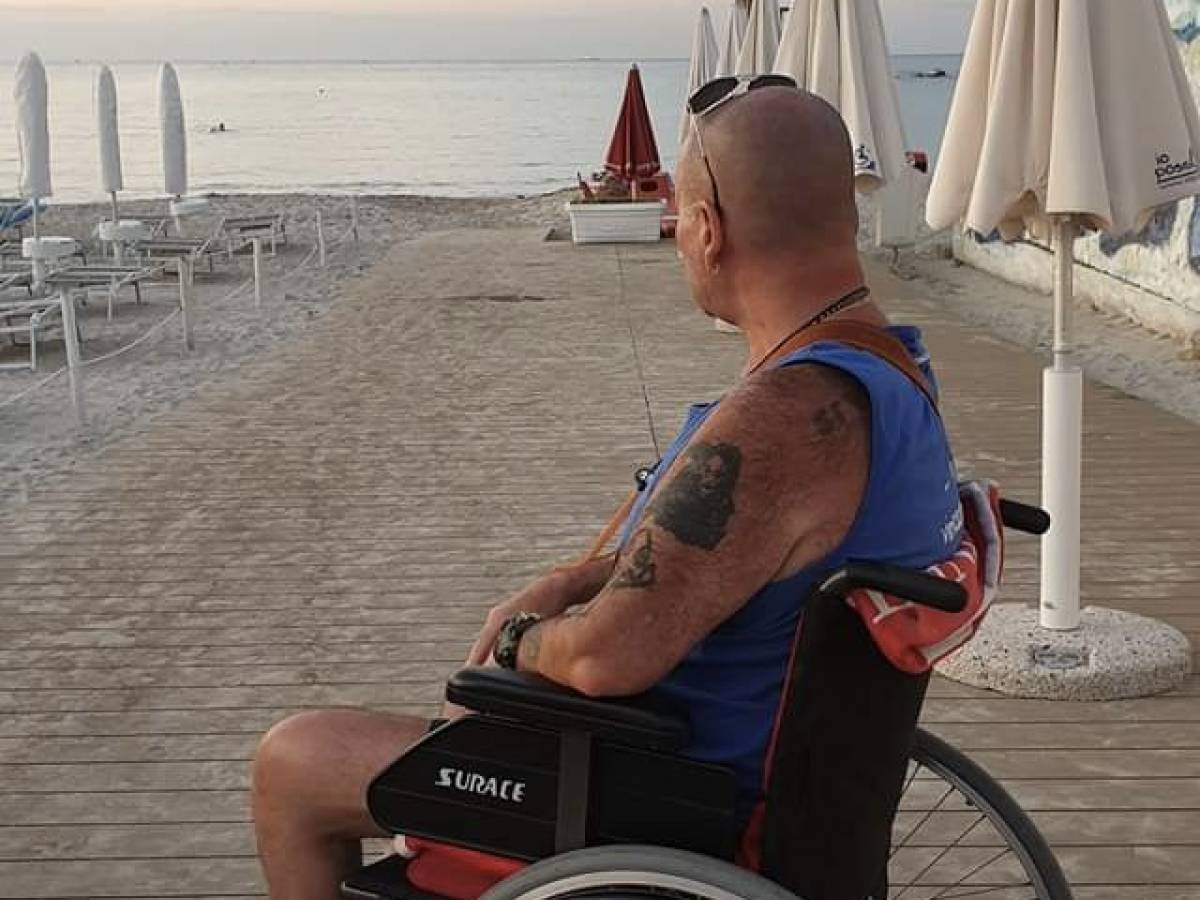This is the second time this has happened. The first told him by phone, saving him at least the trip, the second instead he discovered it directly in the hospital: the drug is not there. In any case a freezing shower for Claudio Salvitti, a 58-year-old Roman, suffering from a rare disease that within six years nailed him to a wheelchair. His name is inclusion body myositis, attacks the muscle tissues, inflames and pulverizes them. There is no cure. It can only be slowed down with often empirical treatments. These include the administration of immunoglobulins. The one that Claudio skipped twice.
Last Monday he arrived at the Nemo Clinical Center of Gemelli Polyclinic for the monthly day-hospital and they sent him home. “It already happened in January. Every time I miss a period I feel that the disease starts to gallop”, Claudio vents with a whisper. “Sorry – he tells us – but I can’t speak”. He is demoralized. Things have not been going well lately. Respiratory problems also started last March. The spirometry test says that he breathes as if he has only one lung. He is no longer able to get up from the wheelchair, to grab objects, to change side at night, he can no longer even make a scribble of his signature. His wife feeds him and lifts him from the toilet. Claudio is afraid. He wonders if all this is partly related to the lack of administration of the Ig-Vein.
So it is called the life-saving drug that assumes. They are immunoglobulins. Plasma derivatives. Kedrion produces them and they appear in the Aifa list of currently deficient drugs updated to June 14. “High demand: discontinuous supplies”, specifies the document. It means that pharmaceutical companies produce little or in any case in quantities that are not sufficient to satisfy the demand. The situation, we always learn from the dossier, is destined to remain unchanged until 31 December. Claudio at this point begins to convince himself that his therapy is at risk, his like that of the dozens of chronically ill patients who need immunoglobulins. “We have a chat and these days it’s hot. Today it happened to me – says Salvitti – tomorrow it could happen to someone else”.
“What is Minister Speranza waiting for to move? Does he want to see me dead? There is a lot of talk about a lack of raw materials, a lack of energy, but about the lack of drugs on which the lives of people like me depend. No one talks about it. Why – he concludes Claudio – for the lack of immunoglobulins, isn’t there the same mobilization we see for gas? “. The question is serious and goes far beyond the case of Claudio and Gemelli. It is a problem felt worldwide. To explain it to us is the doctor Marcello Pani, director of the hospital pharmacy of the Polyclinic. “With the pandemic, blood donations have decreased drastically, to the point that the pharmaceutical industries have difficulty in finding it. If there is no plasma, there are no blood products. They are not only lacking in Italy, but all over the world“.
This obviously also complicates the attempt to find the doses on the foreign market. “The situation – he explains – is not an emergency, but a lack. There is a technical table activated by Aifa precisely to rationalize the immunoglobulin resources available on the national territory. The whole supply chain goes out of its way to try to manage critical issues. “The doctor is confident.” I am sure that with the waning of the pandemic, the donations and the situation will normalize. Indeed, I take the opportunity to invite the reader to donate. “Doctor Pani does not know the case of Salvitti, however he is keen to provide reassurance:” It is clear that in a therapeutic path, phases and timing must be respected, postponing or skipping a cycle it should be avoided, or in any case managed by the clinician, also taking into account the psychological and emotional implications of the patient “.
